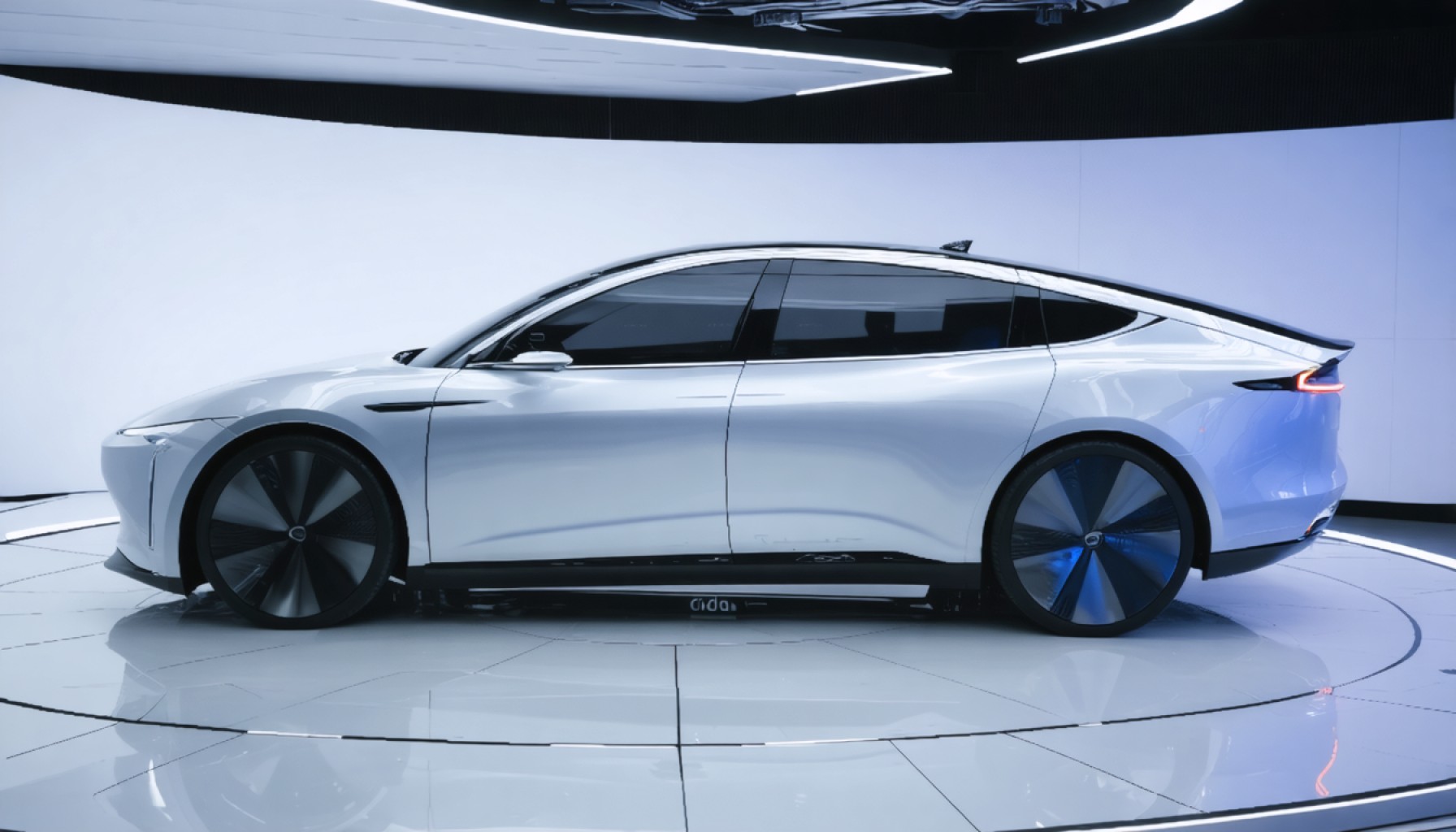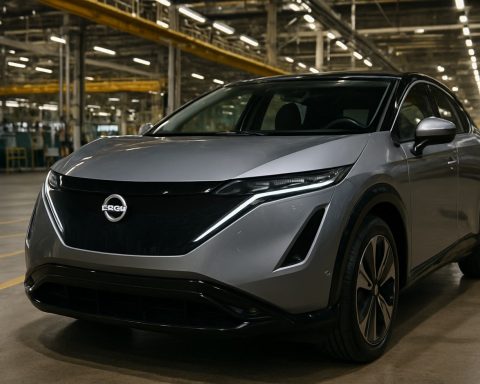- BYD surpasses Tesla with US$107 billion revenue in 2024, marking a 29% year-on-year growth with 4.27 million vehicle sales.
- Tesla’s 2024 revenue fell to US$97.7 billion, delivering 1.79 million vehicles, a decrease of 1.1%, signaling shifts in market dynamics.
- BYD’s innovative fast-charging system and “God’s Eye” driver-assistance feature enhance competitive edge over Tesla.
- BYD holds a commanding 32% share of China’s NEV market compared to Tesla’s 6.1%, highlighting strategic dominance.
- Tesla faces challenges with declining sales in Europe, indicating the need for strategic reinvention.
- The evolving electric vehicle landscape emphasizes innovation, market strategy, and the pursuit of a sustainable future.
A seismic shift has occurred in the realm of electric vehicles, as Chinese automaker BYD has dethroned Tesla, soaring to new heights with a staggering 777 billion yuan (US$107 billion) in 2024 revenue. This marks a year-on-year growth of 29%, driven by unprecedented sales figures that saw 4.27 million vehicles—both electric and plug-in hybrids—grace international roads.
Meanwhile, Tesla finds itself trailing with US$97.7 billion in revenue for the same year, delivering 1.79 million fully electric cars—a number that regrettably represents a 1.1% dip, the first decline in the company’s storied history. It is a stark revelation that underscores an evolving market landscape, where innovation and strategic boldness dictate the pace.
Electrifying Innovations Ignite the Race
The heart of BYD’s success, beyond mere numbers, lies in its relentless pursuit of innovation. Recently, the company unveiled a transformative fast-charging system, capable of electrifying a vehicle with 250 miles of range in just five minutes. This quantum leap leaves Tesla’s Supercharger—a proud staple, yet offering 200 miles in 15 minutes—slightly in the dust.
Further fueling BYD’s ascent, their proprietary “God’s Eye” driver-assistance system is now a standard feature across most models, offered at no extra cost. Such strategies intensify competitive pressures, especially when juxtaposed with Tesla’s Full Self-Driving system, a premium feature yet to receive regulatory blessing in China.
Conquering Markets with Unyielding Ambition
Despite the wall of tariffs keeping BYD out of the American heartland, its presence in China’s thriving new energy vehicle market is nothing short of formidable. The company commands an impressive 32% market share, dwarfing Tesla’s 6.1%, as documented by the China Passenger Car Association. This dominance highlights BYD’s strategic acumen in leveraging one of the world’s largest consumer bases for NEVs.
Meanwhile, Tesla’s fortunes in Europe are similarly under challenge. A double blow came as sales in February nosedived by 40% year-on-year, marking the second month of consecutive decline. Such trends hint at the daunting reality Tesla faces in its quest to regain momentum in key territories.
The Road Ahead
As BYD accelerates into the future, a critical narrative emerges, illuminating how innovation, market acumen, and strategic maneuvering can disrupt even the most established leaders. Tesla, a pioneer that championed the electric vehicle revolution, now stands at a crossroads, tasked with reinventing its strategy in a world where competitors are quickly catching up.
Today’s electric vehicle arena is not just a battleground of numbers but of transformative ideas and visions for a sustainable future. BYD’s meteoric rise signals a dynamic shift—one where the capacity to dream, innovate, and pioneer sets the true leaders apart. In this vibrant era, the torch of leadership is passed dynamically, marking an exhilarating chapter in the storied saga of automotive evolution.
Electric Vehicle Showdown: How BYD Outpaced Tesla in 2024
In recent automotive headlines, the electric vehicle (EV) industry has witnessed an unprecedented shift: BYD, a leading Chinese automaker, has surpassed Tesla in annual revenue, reaching a remarkable 777 billion yuan (approximately US$107 billion) in 2024. With a 29% year-on-year growth and 4.27 million vehicles sold, including electric and plug-in hybrids, BYD has carved a substantial place in the global market. This article delves into the factors fueling BYD’s success and the challenges Tesla faces as both companies navigate an increasingly competitive landscape.
The BYD Advantage: Innovation and Strategy
1. Technological Innovations
BYD’s innovative strides are exemplified by their groundbreaking fast-charging system. Capable of providing 250 miles of range in a quick five-minute charge, this development outstrips Tesla’s Supercharger, which delivers 200 miles in 15 minutes. This advancement positions BYD as a leader in rapid charging technology—a key consideration for consumers seeking convenience and efficiency in electric mobility.
2. Advanced Driver Assistance Systems
BYD’s competitive edge is further highlighted by their “God’s Eye” driver-assistance system, a standard feature now included in most models without additional cost. This move contrasts with Tesla’s Full Self-Driving system, which remains a premium option and awaits regulatory approval in China. As safety and autonomy continue to be paramount for consumers, BYD’s approach offers immediate value without added expense.
3. Market Domination in China
Despite the tariff barriers precluding American market penetration, BYD commands an impressive 32% market share in China’s flourishing new energy vehicle (NEV) segment. This dwarfs Tesla’s 6.1% market share, showcasing how BYD has effectively capitalized on one of the world’s largest consumer bases.
Challenges for Tesla
1. Navigating Market Dynamics
Tesla’s decline in European sales, marked by a 40% year-on-year drop in February 2024, indicates challenges in adapting to regional consumption patterns. The company’s first-ever decline in annual vehicle deliveries—down 1.1% to 1.79 million units—signals that Tesla must reassess its global strategy to maintain market relevance.
2. Competition and Differentiation
With innovative products and market penetration strategies, competitors like BYD have intensified the competitive landscape. Tesla’s differentiators, such as autonomous driving functions and charging networks, now face vigorous challenge, requiring reassessment and enhancement to regain lost ground.
How BYD’s Success Affects the Industry
1. Market Forecast and Trends
The success seen by BYD suggests a trend where comprehensive strategy, technological novelty, and market adaptability define industry leadership. As analysts project more diversified EV offerings, market incumbents are urged to foster innovation while adjusting to varying international regulatory environments.
2. Sustainability and Consumer Preferences
Increasing consumer demand for sustainable practices and features—evident in BYD’s green technologies—push the industry toward eco-conscious developments. Companies are compelled to invest in sustainability to attract an environmentally aware consumer base.
Recommendations for Consumers and Manufacturers
For Consumers:
– Evaluate Charging Infrastructure: Consider vehicles offering faster charging times as a practical benefit for frequent travelers.
– Assistance Features: Look for standard advanced driver-assistance systems, which provide better value without additional costs.
For Manufacturers:
– Innovate Continuously: Staying ahead necessitates constant innovation and refinement of product offerings.
– Adapt to Market Trends: Understanding local market dynamics and consumer preferences will be key to sustaining competitive advantage globally.
As the EV market continues its rapid evolution, the success of companies like BYD reveals that innovation and strategic agility are critical components of market leadership. For further insights into automotive advancements, visit BYD and Tesla online.













